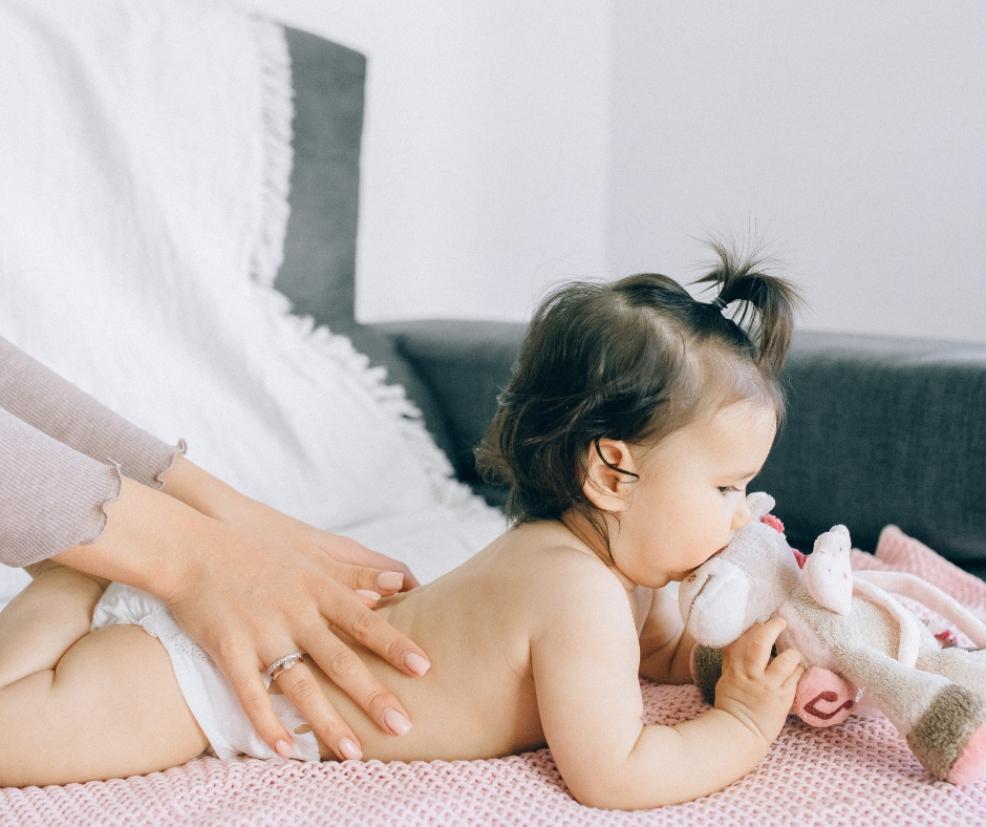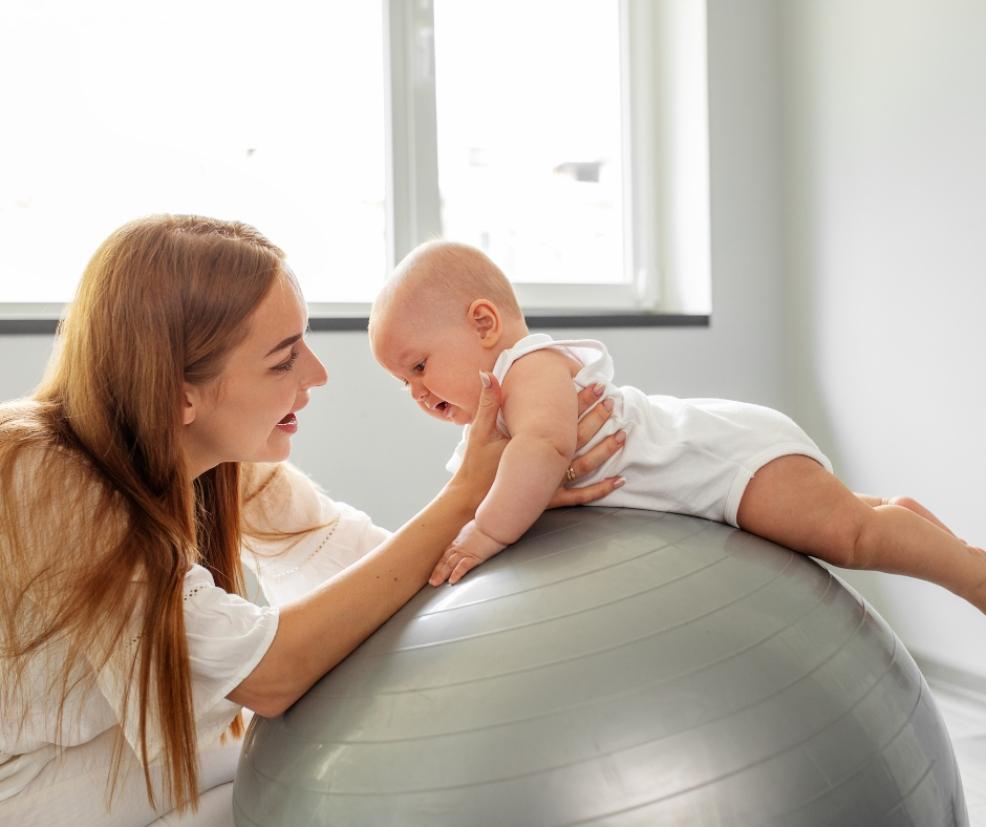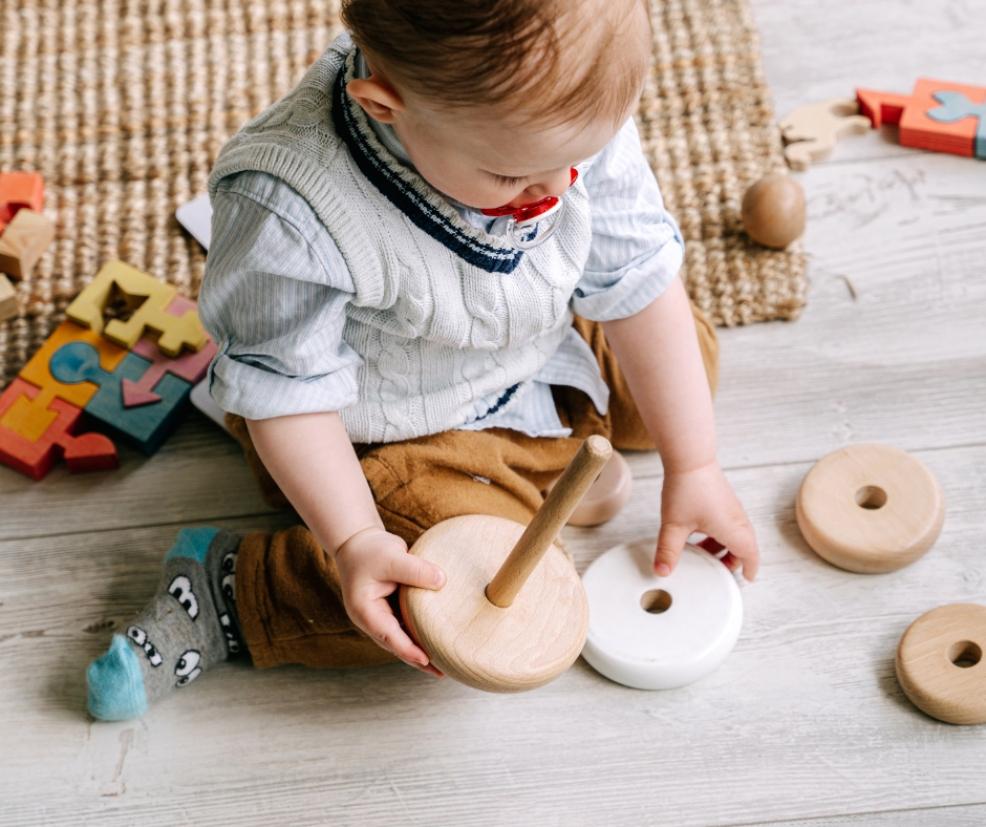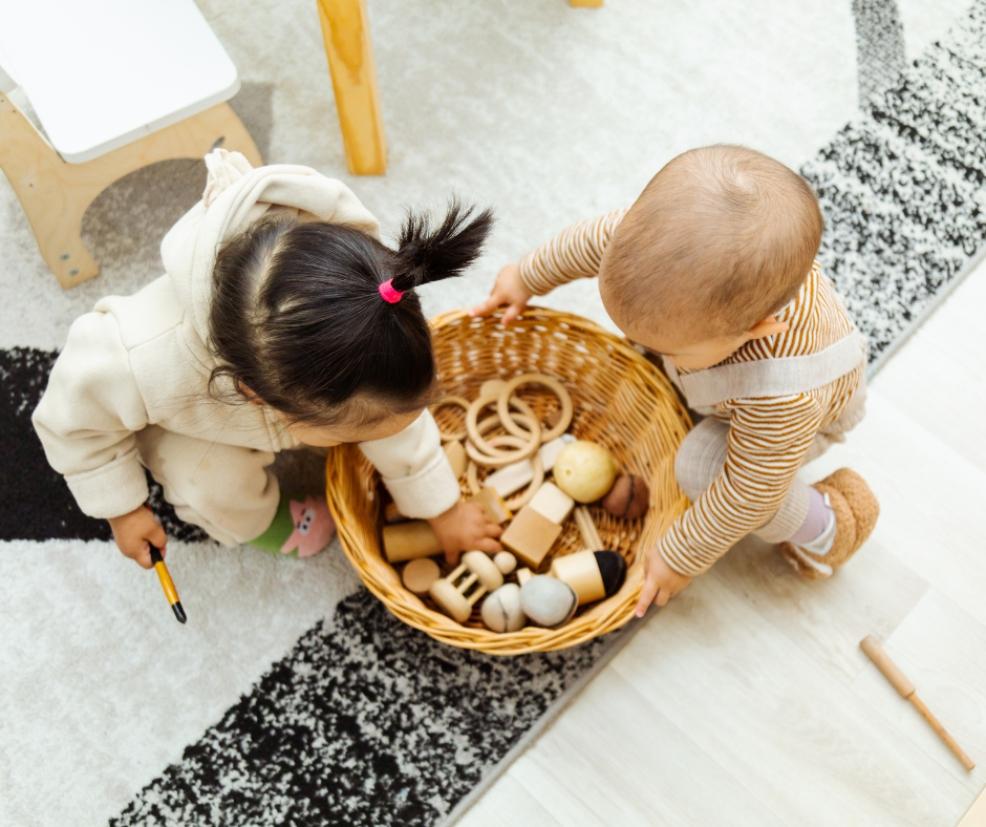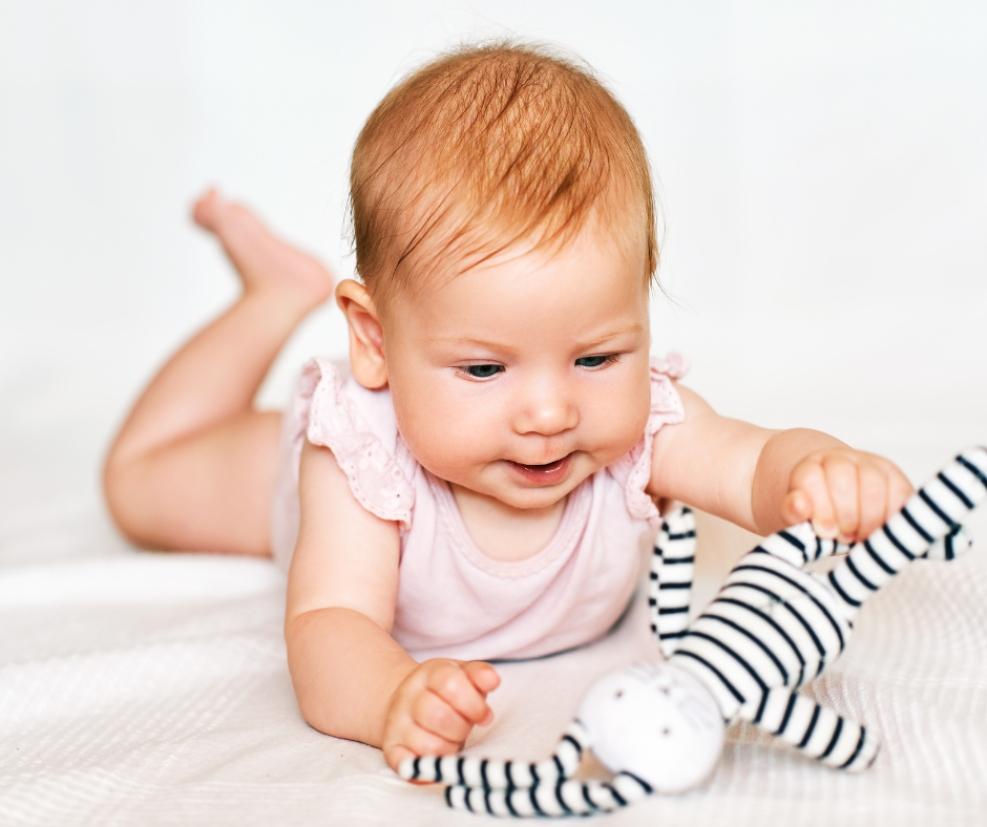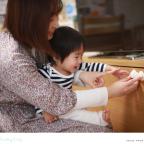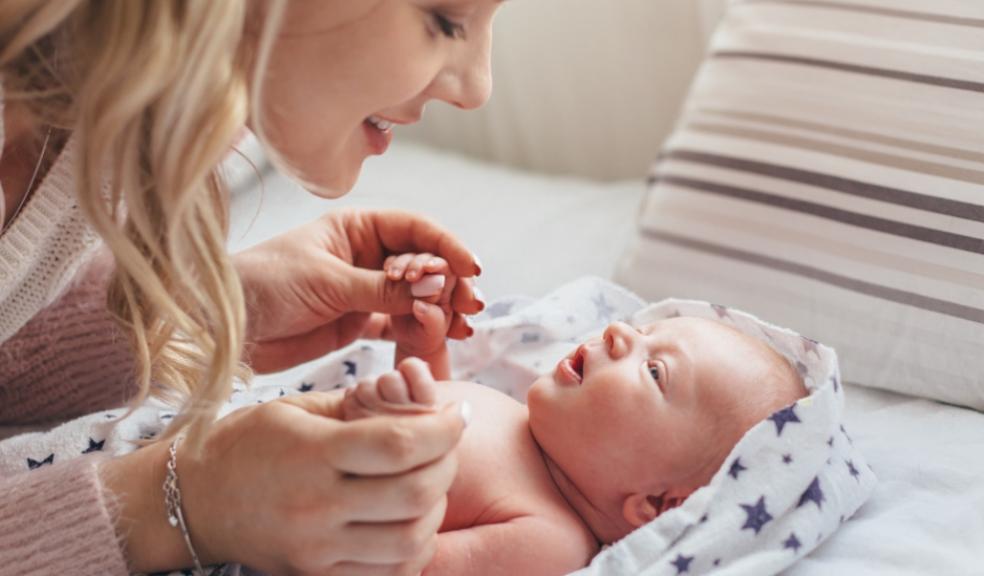
How to Engage Your Baby in Sensory Stimulation
Babies are born with an incredible capacity to learn and explore the world around them. As a parent, you can enhance that process through sensory stimulation while aiding your baby's healthy development.
Kelly Nairne, Marketing Director at Bugaboo, a UK-based brand providing pushchairs, said: “Sensory stimulation is a vital element in a child’s early years, as it plays a crucial role in shaping neural connections, cognitive development, and overall well-being. You can engage your child in sensory experiences through various toys and games, incorporated in their daily life, from nap and feed time to walks in the park.”
What is sensory stimulation?
Sensory stimulation refers to the exposure of a baby's senses—sight, sound, touch, taste, and smell—to various stimuli. These experiences are the building blocks for cognitive, motor, and social development.
Engaging a baby's senses helps create neural pathways called synapses that form the foundation for future learning and complex skills.
How soon is too soon to start with sensory stimulation?
When a baby is born, one of the organs that is not fully developed yet is the brain, and it takes a very short amount of time to do so.
At birth, a baby's brain is merely a quarter of the size of their parents. Within the first year, it doubles in size, and by the age of five, it rapidly grows to reach 90% of the size of their parents’ brains.
A newborn is born with all the brain cells (neurons) they'll ever have, but the brain's magic lies in the connections between these cells, called synapses. These connections drive our ability to move, think, communicate, and more.
Studies indicate that a newborn's brain develops two million synapses every second – a rate unmatched at any other stage. These synapses create pathways for sensory messages to reach the brain and mark baby’s first milestones, such as colour vision, mastering a pincer grasp, and developing an attachment to their parents. The more they are activated, the faster they solidify as permanent connections, and the more the baby’s development is promoted.
Both emotional attention and sensory stimulation, encompassing touch, hearing, sight, smell, and taste, play a pivotal role in influencing sensory neurons and establishing vital connections in the brain. The frequency of using these neuron connections directly impacts their information retention and strength.
According to Janet Doman, co-author of "How Smart Is Your Baby?: Develop and Nurture Your Newborn’s Full Potential," newborns start with limited sensory awareness, and it's the responsibility of parents to employ positive sensory stimulation through all senses as early as possible. In short intervals, this approach strengthens sensory pathways, fostering lasting learning experiences.
What happens if there is a lack of sensory stimulation?
Lack of sufficient sensory stimulation poses a significant risk of developmental and cognitive delays in children. This has been documented in both infants raised in orphanages and preterm babies.
A recent study examined the effects of 5-integrated sensory stimulation (5-ISS) on the development of preterm infants. The results showed that sensory stimulation positively affected social-emotional development, length, stress due to limitation and isolation, and sadness for preterm infants, often caused by major medical interventions and time spent in a neonatal intensive care unit (NICU).
Another study explored the potency of multisensory stimulation to promote feeding and psychomotor development in preterm infants. These interventions were associated with improved outcomes, including a shorter time to achieve full oral feeding, increased consumption of human milk at discharge, and enhanced psychomotor development and visual function. All studies scored six or higher on the PEDro scale, indicating good quality.
On the contrary, excessive exposure to sensory input can result in overstimulation, which overwhelms their developing nervous system. This can happen in various ways, and each baby responds differently to stimuli. Signs of sensory overstimulation in babies may include fussiness, crying, irritability, avoiding eye contact, or becoming unusually quiet. To prevent sensory overload, parents need to be attuned to a baby's cues and create a balanced environment that allows for periods of stimulation and quiet, calm moments.
How do you engage your baby in sensory stimulation?
The earlier you start engaging your baby in sensory stimulation, the better. Here are several practical ways to engage each of the five sensory systems.
Tactile stimulation
Tactile stimulation for babies involves providing various touch experiences to promote sensory development and overall well-being. It encompasses different textures, temperatures, and pressures babies can feel through their skin.
The best form of tactile stimulation is skin-to-skin contact between the parent and the baby, also called kangaroo care. According to recent research, skin-to-skin contact promotes social interaction, reduces stress levels, and stimulates restoration and growth both in the mother and the baby due to the activation of the oxytocinergic system and the release of oxytocin, the “bonding hormone”.
Several ways to practice skin-to-skin stimulation include breastfeeding, carrying the baby around wearing only a diaper, and gentle baby massage.
Textured toys, soft fabrics, and surfaces are also a great way to promote tactile stimulation. Allow your baby to feel different textures, encouraging sensory awareness and fine motor skill development.
Vestibular stimulation
The vestibular system is located in the inner ear and is crucial in balance and spatial orientation. Engaging in vestibular stimulation helps babies develop a sense of balance, coordination, and spatial awareness. It can also contribute to the child's overall sensory and motor development. Here are several ways to promote it:
- Gentle swinging: Rocking or gently swinging your baby can provide vestibular input. Ensure the motion is smooth and gentle to avoid overstimulation.
- Swaying: Holding the baby and swaying gently from side to side or back and forth can stimulate the vestibular system.
- Tummy time on a ball: Placing the baby on their tummy on an exercise ball and gently rolling the ball back and forth can help strengthen neck and upper body muscles.
- Gentle rides in a pushchair: Taking your baby for a stroll in a pushchair provides a rhythmic and gentle movement, offering vestibular stimulation.
- Rocking chairs or gliders: Gentle rocking in a rocking chair or glider during feeding or soothing times can aid spatial orientation.
Chemical stimulation
The olfactory and gustatory senses play a crucial role in a baby's exploration of the world and can influence their preferences and behaviours. Here are some ways to promote chemical stimulation for babies:
- Scented toys and objects: Introduce toys or objects with gentle scents, such as those made from safe and non-toxic materials. Ensure that the scents are mild and not overwhelming.
- Aromatherapy: Use subtle and baby-friendly aromatherapy, such as lavender or chamomile scents, in the baby's environment. This can be achieved through diffusers, scented pillows, or lightly scented lotions.
- Safe and age-appropriate tasting: Introduce age-appropriate tastes through safe and nutritious foods. Start with simple, single-ingredient purees and gradually introduce a variety of flavours.
Auditory stimulation
Auditory stimulation involves activities that engage their sense of hearing. These activities are important for developing language skills, auditory perception, and overall sensory awareness. Here are several ways to promote auditory stimulation for babies:
- Musical play: Introduce soft, melodic tunes or gentle lullabies to soothe and engage your baby. During supervised playtime, you can also play simple musical instruments like chimes or a soft drum.
- Conversational interaction: Engage in a conversation with your baby, responding to their coos and gurgles. Use various tones and facial expressions to make the interaction dynamic and exciting.
- Musical toys: Introduce age-appropriate musical toys that produce soft and pleasant sounds. This encourages the baby to explore and engage with their environment.
Visual stimulation
Upon birth, a baby's retina is not yet fully developed. Unlike an adult retina capable of discerning various shades of light and colour, a newborn's retina can only perceive stark contrasts between light and dark or black and white. They make a powerful impression on a baby's retina, sending robust signals to the brain for increased growth and faster visual development.
Here are a few ways to visually stimulate your baby:
- Surround your baby with black and white or contrasting images and stripes.
- Choose toys with bold, high-contrast patterns to capture your baby's attention.
- Hold a visually stimulating object slightly out of reach and move it slowly, encouraging your baby to track it with their eyes.
- Hang a toy in contrasting hues above the crib and in the pushchair for your baby to look at while falling asleep.
Conclusion
Engaging your baby in sensory stimulation through various activities and creating an enriching environment is a holistic approach to fostering their development. Pay attention to your baby's responses, tailor activities to their comfort level, and enjoy the delightful journey of discovery and growth together.

